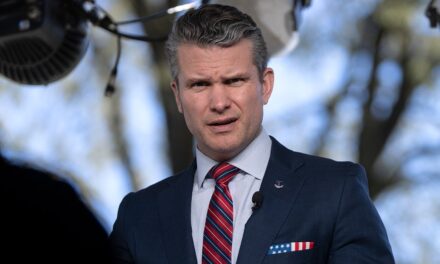In an unexpected show of bipartisan support, Colorado Governor Jared Polis, a Democrat, has publicly commended former President Donald Trump for his decision to nominate Robert F. Kennedy Jr. as the Secretary of Health and Human Services (HHS). This announcement has surfaced as a significant development in the ongoing discussion surrounding leadership in public health at the national level.
Governor Polis’s praise for Trump’s selection marked a notable moment of political unity in these polarized times. He expressed his confidence in Kennedy’s abilities to lead the HHS effectively, despite Kennedy’s controversial stance on several public health issues, most notably his skepticism towards certain vaccines.
“While we may not agree on every issue, Robert F. Kennedy Jr. has been a passionate advocate for public health and has an undeniable track record of environmental and health-related activism,” Polis remarked at a recent press conference. He emphasized the importance of having leadership that is willing to challenge the status quo and bring fresh perspectives to the table, especially in a sector as crucial as health and human services.
Kennedy, a member of the famous Kennedy family, has been a prominent environmental lawyer and vaccine skeptic. His potential appointment has sparked a wide array of reactions from different sectors, mainly because his views on vaccines have been contentious. The prospect of him leading a department that plays a pivotal role in national health policy has raised both hopes and concerns among healthcare professionals and the public alike.
Some public health experts fear that having Kennedy at the helm of HHS might undermine ongoing vaccination efforts, especially at a time when trust in vaccines is vital for managing public health crises. Advocacy groups focused on vaccines have expressed apprehension over his appointment, highlighting the potential risk of spreading misinformation regarding vaccine safety and efficacy.
Conversely, Kennedy’s supporters argue that his leadership could introduce necessary reforms in the pharmaceutical industry, which they see as being too closely tied to government policies. They believe his tenure could foster greater transparency and accountability in how public health policies are crafted and implemented.
In the context of this nomination, Governor Polis stressed the value of having diverse voices and opinions in public service roles, suggesting that it encourages critical analysis and robust debates, ultimately leading to more holistic policy decisions. He acknowledged that while he doesn’t endorse all of Kennedy’s views, he respects his commitment to questioning established norms and advocating for healthier environments.
This nomination also prompts questions about the nature of political appointments in the realm of public health. Traditionally, appointees to positions like the Secretary of Health and Human Services have had extensive backgrounds in medicine or health policy. Kennedy’s background, however, is primarily rooted in law and environmental advocacy. Proponents of his nomination argue that Kennedy’s unconventional background could provide a much-needed shake-up to traditional bureaucratic approaches.
In looking at Kennedy’s potential role, it’s important to analyze how his environmental advocacy could intersect with public health agendas. Environmental factors often contribute significantly to population health outcomes, and Kennedy’s past work might enhance initiatives targeting environmental determinants of health. For instance, under his leadership, there could be increased efforts to combat pollution and promote clean air and water policies as integral components of public health strategy.
Governor Polis’s commendation of Trump’s decision seems to reflect a broader sentiment that in uncertain and challenging times, cooperation across party lines can lead to constructive outcomes. His statement underscores a belief in public service that transcends partisan boundaries, focusing instead on the qualifications and potential contributions of individuals, regardless of their political affiliations.
This act of bipartisan support is a reminder of the potential for unity in addressing national challenges, particularly in a climate where politicization of health matters can impede progress. The extent to which Kennedy can bridge the divide between his views and the expectations of public health experts will determine how successful his tenure might be if confirmed.
In the end, Kennedy’s nomination stands as a testament to the evolving nature of public service roles and the diversity of thought that is increasingly recognized as beneficial in tackling complex issues. As the confirmation process unfolds, scrutiny from both lawmakers and the public will likely increase, putting Kennedy and his stances under the microscope.
Despite varying opinions about his nomination, the spotlight now focuses on how his potential leadership could impact the U.S.’s approach to health and human services. The dialogue surrounding his appointment could invigorate discussions on how best to balance innovation, safety, and science in the formulation of health policies.
































